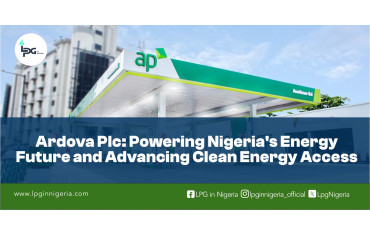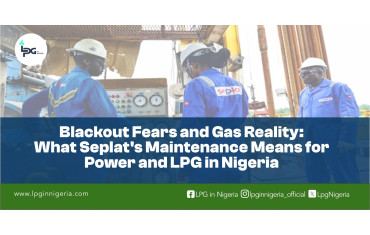- 3838
- 0
Sharing Ideas and Updates on LPG in Nigeria and related information to enable effective collaboration within the LPG Value Chain
The Role Of LPG In Rural Electrification And Energy Access

Energy access is a critical component of development, particularly in rural areas where traditional energy infrastructure may be lacking. Liquefied Petroleum Gas (LPG) has emerged as a viable solution to address the energy needs of rural communities. Rural electrification refers to the process of bringing electrical power to rural and remote areas that are not connected to the main electrical grid. This can involve extending existing power lines, setting up localized microgrids, or utilizing off-grid solutions such as renewable energy sources and distributed energy systems to provide electricity. This blog explores the role of LPG in rural electrification and its impact on improving energy access, economic development, and quality of life.
The Challenges of Rural Electrification
Rural electrification faces numerous challenges, including:
1. Infrastructure Costs: Extending the electrical grid to remote areas can be prohibitively expensive.
2. Geographical Barriers: Difficult terrain and dispersed populations make infrastructure development challenging.
3. Economic Constraints: Rural populations often have limited financial resources, making it difficult to afford connection fees and ongoing energy costs.
4. Reliability Issues: Even where grid connections exist, power supply can be unreliable due to infrastructure weaknesses.
LPG as a Solution for Rural Energy Access
LPG offers several advantages that make it a suitable option for rural energy access:
1. Cost-Effective Infrastructure: Unlike electricity grids, LPG distribution does not require extensive infrastructure. Cylinders can be transported to even the most remote areas.
2. Versatility and Reliability: LPG can be used for various applications, including cooking, heating, and electricity generation, providing a reliable energy source regardless of grid availability.
3. Environmental Benefits: LPG burns cleaner than traditional biomass fuels such as wood or charcoal, reducing indoor air pollution and contributing to better health outcomes.
4. Economic Opportunities: The establishment of LPG supply chains creates local jobs and stimulates economic activities, contributing to the overall development of rural areas.
Applications of LPG in Rural Areas
Cooking and Heating:
1. Health Benefits: Using LPG for cooking significantly reduces exposure to harmful smoke from traditional biomass fuels, improving respiratory health.
2. Efficiency: LPG stoves are more efficient and faster than wood or charcoal stoves, saving time and reducing the effort needed to gather firewood.
Electricity Generation:
1. Off-Grid Solutions: LPG-powered generators can provide electricity in off-grid areas, supporting lighting, refrigeration, and other essential services.
2. Hybrid Systems: Combining LPG with renewable energy sources like solar can create hybrid systems that ensure a continuous power supply.
Agricultural Applications:
1. Irrigation and Water Pumping: LPG engines can power irrigation systems and water pumps, improving agricultural productivity.
2. Crop Drying: LPG can be used for crop drying, reducing post-harvest losses and increasing food security.
Case Studies and Success Stories
India's Pradhan Mantri Ujjwala Yojana (PMUY):
This initiative aimed to provide LPG connections to rural households, replacing traditional cooking fuels. The program has improved health outcomes and reduced deforestation.
Ghana’s Rural LPG Promotion Program:
Ghana's efforts to promote LPG use in rural areas have led to increased adoption rates, reducing reliance on biomass and enhancing energy security.
Mexico’s LPG Rural Electrification Projects:
In remote regions of Mexico, LPG-powered microgrids have been established, providing reliable electricity and fostering local economic development.
Challenges and Considerations
While LPG offers numerous benefits, several challenges need to be addressed:
1. Affordability: Initial costs for LPG appliances and cylinders can be a barrier. Subsidies or financing options may be necessary to enhance affordability.
2. Supply Chain Development: Ensuring a consistent and reliable LPG supply requires robust distribution networks and infrastructure investment.
3. Education and Awareness: Educating rural communities about the benefits and safe use of LPG is crucial for adoption and long-term success.
LPG plays a pivotal role in enhancing energy access and supporting rural electrification. Its versatility, cost-effectiveness, and environmental benefits make it an ideal solution for addressing the unique challenges of rural areas. By investing in LPG infrastructure, promoting its use, and addressing affordability and supply chain issues, we can significantly improve the quality of life in rural communities, fostering economic development and environmental sustainability. As we look towards a future where everyone has access to clean and reliable energy in Nigeria, LPG stands out as a key player in bridging the energy gap and empowering rural populations.
















0 Comment.